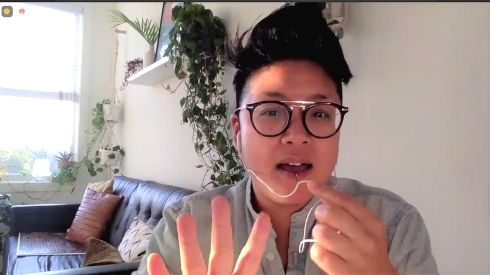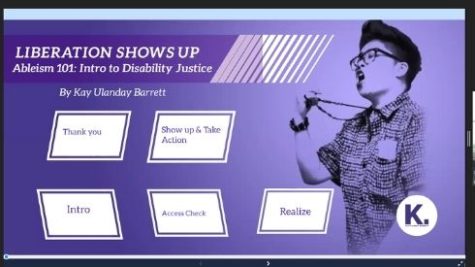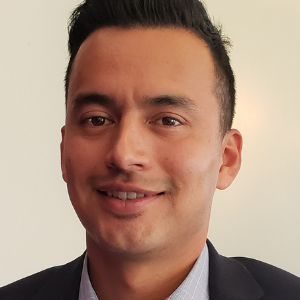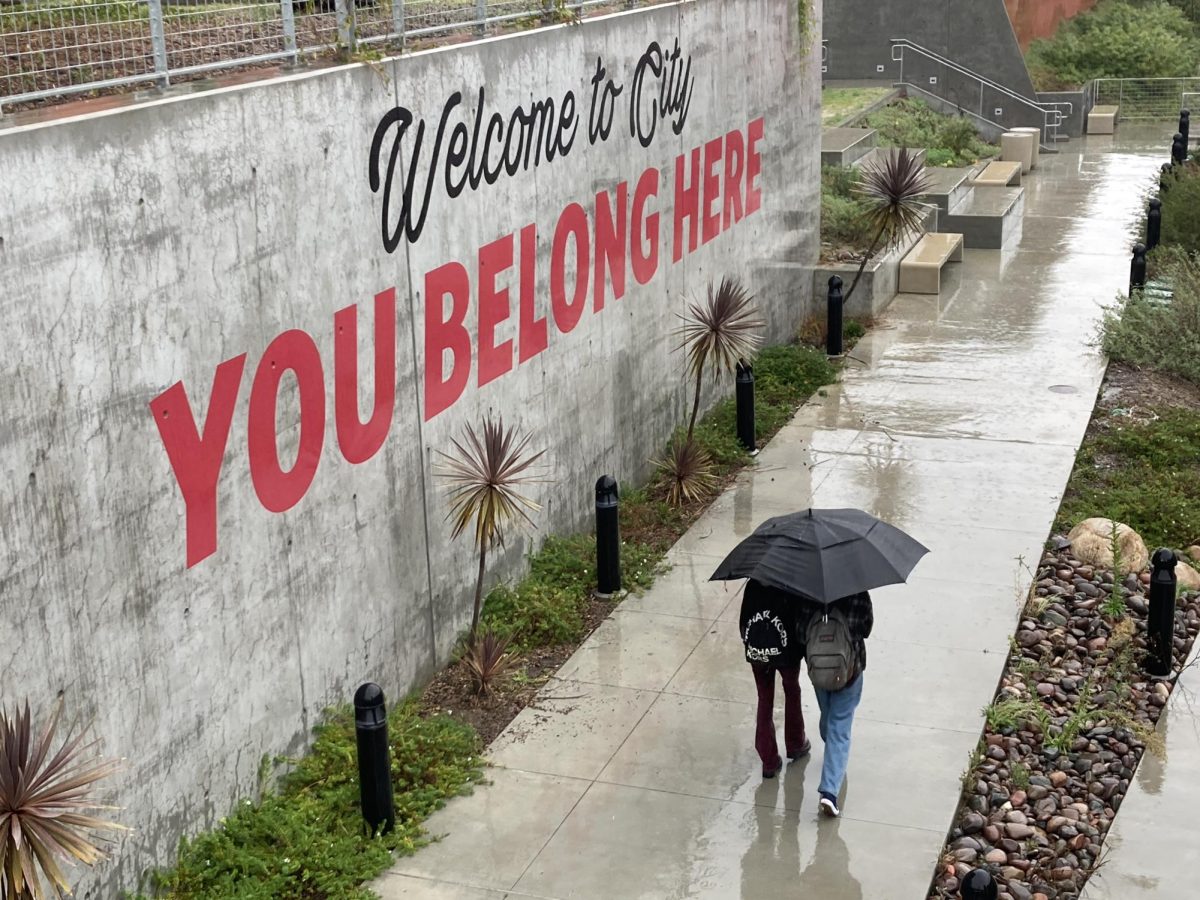Artist redefines self-identity through poetry at City World Cultures event
Poet, performer and educator shares navigating life as a disabled “Filipinx-Amerikan” transgender queer

Poet Kay Ulanday Barrett shares poetry at the Zoom event ,Liberation Shows Up !on Oct. 14. Zoom screenshot
October 19, 2021
With the natural light of the New Jersey sun peering through the window of his living room, the poems of Kay Ulanday Barrett engaged in powerful self-expression by sharing elements of rap, hip-hop, storytelling, theater, jazz and rock.
The sixth World Culture Program event of the fall semester was live-streamed on Zoom on Oct. 14 and featured an explorative poetic presentation and workshop entitled Liberation Shows Up! with Barrett.
Barrett, also known as @Brownroundboi, is a poet, performer and educator on navigating life as a disabled “Filipinx-Amerikan” transgender queer.
“The pronouns I use are he, they, and siya — which is an integral part of the Filipino language for your colonization, and I am a brown round boy boi,” Barrett said.
“So I’m going to ask you to take a deep breath and if all of us could just inhale, exhale,” he added.
Barrett didn’t waste time going into a transformative performance, delivering a series of poems in the style of the spoken word.
Barrett’s first poetry reading was about how those who identify as disabled “sick” perceive themselves and how we have to care for each other.
And when nerves are ablaze. / I am told to be blanket, like as my torso on their abdomen, to abdomen core to court is this. / Is this what a field does to a hill. / Spill it with poppies. / I weigh on their skill, how they will say, the human body is heated heating pad limbs bonfire flip sheets, you cannot reverse sick today. / Today we don’t want to.
The second poem, entitled “You Are So Brave,” presented the judgmental views many have of marginalized people and how they’re forced to be brave, or pushed to react due to prejudice.
A final poem was delivered using a technique called a central poem. Barrett was taught in college to take excerpts and repurpose them to unify and express perspective.
“So interesting I feel so have decided to create a Santo, this is a poem not written by me,” Barrett said. “They have excerpted quotes from so many black indigenous people of color and so many sick and disabled and deaf people in my life.”
The recurring themes of identity and perspective for those who have to navigate through persecution for their own gender identity, race, and disabilities were present throughout.

The workshop asked the viewers to question what it meant to be disabled and how we can each work toward an inclusive narrative.
The workshop was accompanied by a PowerPoint presentation sharing the perspective that ableism is a false narrative that portrays those with disabilities as less than or inferior.
The narrative offered currently stems from an institutional, structural and intra-personal issue centered around blaming disability on the individuals directly.
Five more World Cultures Program events are left this fall and they range from performances to film screenings to panel discussions.
“We have a couple of powerful documentary films about how people are fighting substance addiction in Native American communities,” said City music professor Mike Espar, who is also the co-coordinator of the World Cultures Program. “A week after, we have the chemistry behind coffee, where we’re going to explore how coffee affects the body.
“We will even have a virtual performance from the San Diego Symphony. Members of the symphony will be playing for us and then talking about the pieces.”










